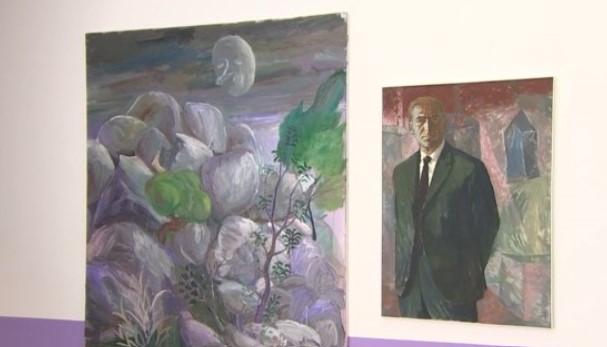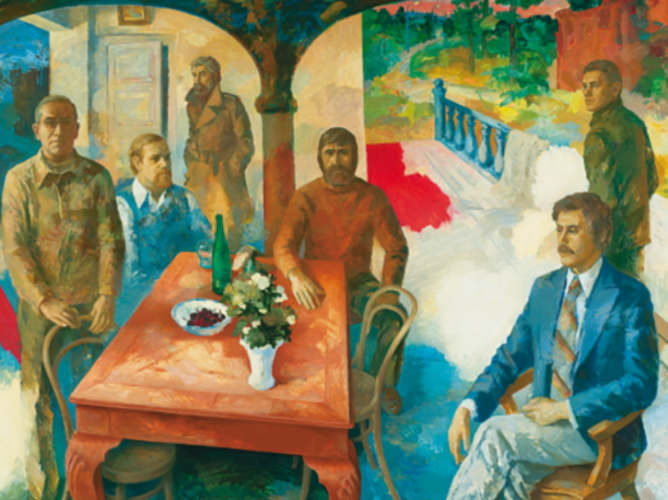On the 24. of July at 16:00 curator Àngels Miralda will give a tour of her exhibition “Olev Subbi. Landscapes from the End of Times”. The event takes place at Tallinn Art Hall and is in English.
Ninety years after Olev Subbi’s birth, the Tallinn Art Hall re-examines his practice in the context of some of the most tumultuous moments of Estonian Art History. Olev Subbi: Landscapes from the End of Times offers a new perspective on his practice alongside the work of contemporary international artists that expand upon his interests in the connection between ecology and the social through meditations on our relationship with nature. Subbi’s view of history is non-linear – his paintings are windows onto parallel worlds that are neither present, past nor future. The invitation to contemporary artists was made by linking particular themes present in Subbi’s work with ongoing social problems. The exhibition positions itself by encouraging continuous revisionism and establishing global non-linear links in a chain. Although Subbi lived in the most difficult of contexts in the bleakness of post-war Estonia, his lesson is to survive by finding beauty in everything. At the core of his artistic philosophy is the constructive idea of building out of optimism. Landscape becomes a place of hope, of memory, remembrance, and a site in which to construct the future.
Works by Larry Achiampong, María Dalberg, Nona Inescu, Ad Minoliti, Juana Subercaseaux, Nazim Ünal Yilmaz, and Maya Watanabe will add discourses that diversify Subbi’s subject matter through the critical perspective of a contemporary context. From diverse fields of study, landscape is problematized into the fields of eco-feminism, eco-nationalism, queer theory, historical revisionism, and Afrofuturism. Adding critical angles to Subbi’s work as well as the context in which he worked, the creative explosion that took place under the post-Stalinist regime of censorship will create parallels to adverse conditions that continue to this day. In our global context of rising censorship and state authoritarianism alongside ecological collapse, Subbi’s attitude and historical value provide lessons from a time when freedom was not taken for granted.




